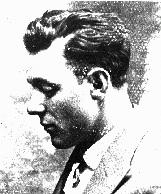You searched for: 5G基站源码搭建定制开发【TG���������@EK7676】平台包网搭建5G基站源码搭建定制开发【TG���������@EK7676】平台包网搭建1GZTwVod8U
<< Previous | Displaying results 641-650 of 820 for "5G基站源码搭建定制开发【TG���������@EK7676】平台包网搭建5G基站源码搭建定制开发【TG���������@EK7676】平台包网搭建1GZTwVod8U" | Next >>
-
Michal Scislowski
ID CardMichal was one of two children born to Catholic parents living in Siedlce, a large town some 65 miles east of Warsaw. Michal's father was an intelligence officer in the Polish army. Because his duty station frequently changed, the family lived in several towns along the Polish-Soviet border. As a child, Michal enjoyed photography and was active in the boy scouts. 1933-39: Michal's family was living in Wilejka, a town near Vilna, when the Germans attacked Poland on September 1, 1939. The Soviet army…
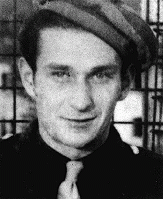
-
Pawel Zenon Wos
ID CardPawel was the oldest of four children born to Roman Catholic parents in Poland's capital of Warsaw. Pawel's father had worked for the Polish merchant marine before starting his own textile business in 1930. The family moved to a comfortable apartment near the Royal Castle and the Vistula River. Pawel excelled in sports, including basketball and tennis. His favorite sport was rowing. 1933-39: In May 1939 Pawel became an army reserve officer and went to training camp near Augustow. On the morning of…
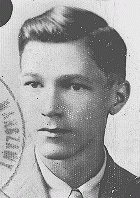
-
Sabina Szwarc
ID CardSabina grew up in a Jewish family in Piotrkow Trybunalski, a small industrial city southeast of Warsaw. Her family lived in a non-Jewish neighborhood. Her father was a businessman and her mother was a teacher. Both Yiddish and Polish were spoken in their home. In 1929 Sabina began public school, and later went on to study at a Jewish secondary school. 1933-39: On September 1, 1939, Germany invaded Poland. Four days later, German troops streamed into Sabina's city. After one month of occupation, her father…
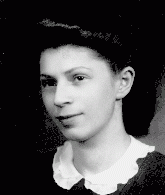
-
Gitla Zoberman
ID CardGitla was the second-youngest of four girls born to observant Jewish parents. They made their home in Sandomierz, a predominantly Catholic town on the Vistula River. Her father owned a small bookstore across from the town hall, selling school texts and novels. Gitla attended public school before enrolling in a Catholic girls' high school. In the winter, Gitla enjoyed skating on the Vistula. 1933-39: In 1937 Gitla moved to Katowice, a large town on the Polish-German border. There, she enrolled in a…
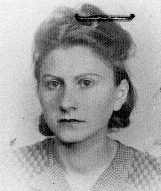
-
Gerda Weissmann
ID CardGerda was born to a Jewish middle-class family in Bielsko, Poland, a town noted for its textile industry. She began her education in Polish public school, but later entered a Catholic girls school. A rabbi was permitted to come into the school and instruct the Jewish students in religious studies. 1933-39: On Friday, September 1, 1939, German fighter planes appeared overhead, causing many people to flee the city. Gerda's family remained and lived through the intense shelling that followed on Sunday…
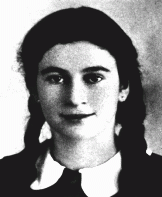
-
Selma Wijnberg
ID CardSelma was the youngest of the Wijnberg's four children, and the only daughter. When she was 7, her family left Groningen to start a business in the town of Zwolle [in the Netherlands]. There her parents ran a small hotel popular with Jewish businessmen traveling in the area. Every Friday there was a cattle market, and many of the cattle dealers came to the Wijnberg's hotel for coffee and business. 1933-39: At home Selma and her family were observant of Jewish tradition because her mother was religious.…
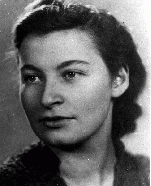
-
Thomas Buergenthal
ID CardThomas Buergenthal was born in May 1934 in the town of Ľubochňa, Czechoslovakia. His parents, Mundek and Gerda, were Jews who had fled the Nazi rise to power in Germany. In Ľubochňa, Mundek ran a hotel that welcomed other refugees and exiles fleeing Nazi persecution. 1933-39: In 1938-1939, Nazi Germany dismantled the country of Czechoslovakia and created the satellite state of Slovakia. As a result, Thomas and his family fled from Slovakia to neighboring Poland. They hoped eventually to immigrate to…
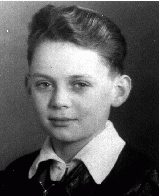
-
Helene Herta Katz Wohlfarth
ID CardHelene, called Herta, was born to a Russian-Jewish father and a German-Jewish mother in a town on the Main River, near Frankfurt. Her father had immigrated to Germany from Russia in 1890. Her mother had automatically taken on her husband's Russian citizenship when she married. In 1914 Russia and Germany went to war, and Russians living in Germany were considered "enemy aliens." 1933-39: Herta married Siegfried Wohlfarth in 1933 and could change from being "stateless" to taking on his German citizenship.…
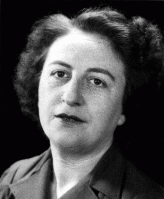
-
Itka Wlos
ID CardItka was raised in a Yiddish-speaking, religious Jewish family in Sokolow Podlaski, a manufacturing town in central Poland with a large Jewish population of about 5,000. Itka came from a poor family. After completing her public schooling in Sokolow Podlaski at the age of 14, she began to work. 1933-39: Itka was a young woman, unmarried and living with her parents when war between Germany and Poland broke out on September 1, 1939. German aircraft bombed Sokolow Podlaski's market and other civilian targets…
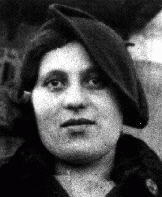
-
Chaim Werzbe
ID CardChaim was raised in a Yiddish-speaking, religious Jewish family in Sokolow Podlaski, a manufacturing town in central Poland with a large Jewish community of about 5,000. The economic activities of most of the townspeople were closely tied to those of nearby Warsaw and surrounding farming communities. As a young man, Chaim liked to play chess and was active in a local Zionist organization. 1933-39: Chaim made a living in the grain business. After settling down, he married a widow who was older than he and…
